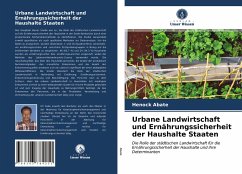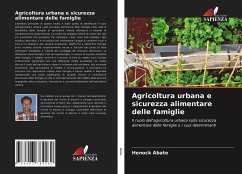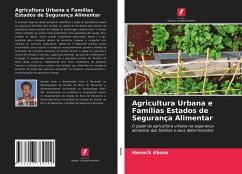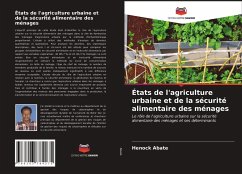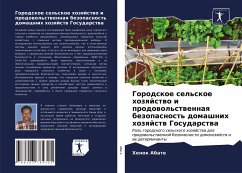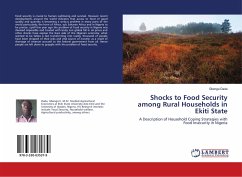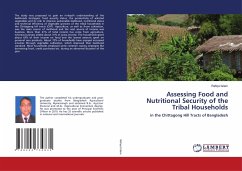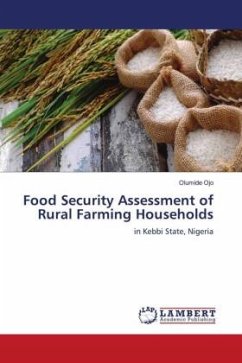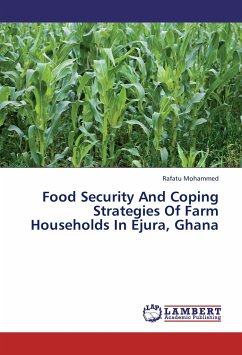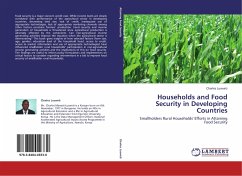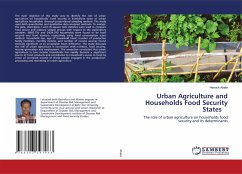
Urban Agriculture and Households Food Security States
The role of urban agriculture on households food security and its determinants
Versandkostenfrei!
Versandfertig in 6-10 Tagen
41,99 €
inkl. MwSt.

PAYBACK Punkte
21 °P sammeln!
The main objective of this study was to identify the role of urban agriculture on households' food security in kombolcha town of urban agriculture households through proportional sampling method. The study used both quantitative and qualitative data analyzed methods. To analyze the data, descriptive, t and chi-square tests statistics were used to compare food secure and insecure sample groups with respect to the explanatory variables. 46(65.7%) and 24(34.3%) households were found to be food secured and food insecure respectively using food consumption score method. Household size, age of house...
The main objective of this study was to identify the role of urban agriculture on households' food security in kombolcha town of urban agriculture households through proportional sampling method. The study used both quantitative and qualitative data analyzed methods. To analyze the data, descriptive, t and chi-square tests statistics were used to compare food secure and insecure sample groups with respect to the explanatory variables. 46(65.7%) and 24(34.3%) households were found to be food secured and food insecure respectively using food consumption score method. Household size, age of household head, number of productive family members, monthly income, and number of income sources found statically significant at an acceptable mean difference. The study discusses the role of urban agriculture in connection with nutrition, food security, income generation and employment. The researcher concluded that urban agriculture in low income households has rapidly become a significant source of fresh products and contributes to household's access to food by virtue of increased income of those people engaged in the production, processing and marketing of urban agriculture.



